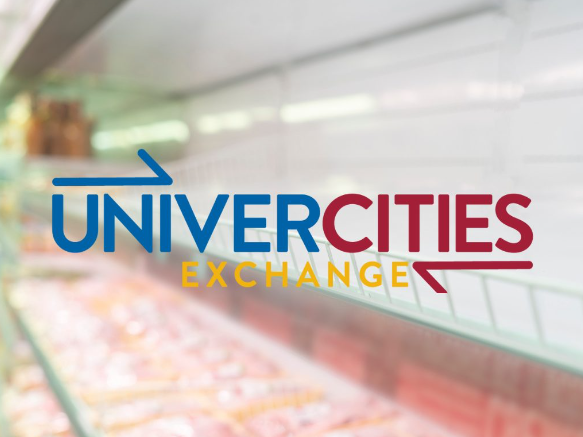Academic and community leaders from Kansas City and St. Louis met virtually to discuss issues combating Missouri’s urban food deserts during this year’s UniverCities Exchange.
UniverCities Exchange is an ongoing collaborative project between the University of Missouri-Kansas City and the University of Missouri-St. Louis and gathers community leaders and academic experts to discuss problems and possible solutions affecting the Kansas City and St. Louis metro areas.
The project began in fall 2020 with a discussion of health disparities during the COVID pandemic. The goal of the conversations is to foster a connection for future collaborations across Missouri.
In this year’s installment, the panel discussed the current state of resource availability and historical events that have led to food shortages.
Steve Kraske, host of KCUR’s Up to Date and UMKC journalism professor, served as moderator. Panelists included:
- Dina Newman, Director of UMKC’s Center for Neighborhoods
- Aimee Dunlap, UMSL Associate Professor of Biology
- Erica Williams, Executive Director of Red Circle
- Max Kaniger, CEO of Kanbe’s Markets
Here are some highlights of the panel’s conversation regarding the problems and how communities are addressing them:
“The Kansas City food landscape has really changed – literally and figuratively – over these last few years. I don’t think you can get a lot for $200 or less. You can drive through these communities of concern and see small, medium and large urban gardens and urban farms. And you can see the diversity of things these people are growing. If the pandemic showed us one thing, it’s about the affordability and the accessibility of food and people are beginning to realize how vital the food system can be.” -Dina Newman
“Living in a food desert can affect your life in many ways. From the not being able to get enough food to feed your family in a way that is affordable, accessible, and attractive, but it also affects the region itself. Grocery stores provide a lot of jobs and sales tax revenue to a region. When you have an area that does not have a grocery store, you are taking all your sales tax revenue dollars and putting those somewhere else.” -Erica Williams
“I think there is lots of potential for success in things like canning and cooking demonstrations. It’s great to grow kale, but then what do you do with it? I think sharing knowledge about cooking and making food in a healthy way, can help to inspire people.” -Aimlee Dunlap
“With Kanbe’s, we wanted to come up with a model that supported small businesses that are already here and supported the infrastructure in our communities while, in the best way possible, supporting the local farm system and reducing waste on the massive wholesale farming industry. We wanted to fill a gap. From there, we have grown, and we are now distributing to over 40 convenience stores, five days a week, and getting a whole lot of healthy food into the community.” -Max Kaniger
To watch last year’s UniverCities Exchange, click here.

